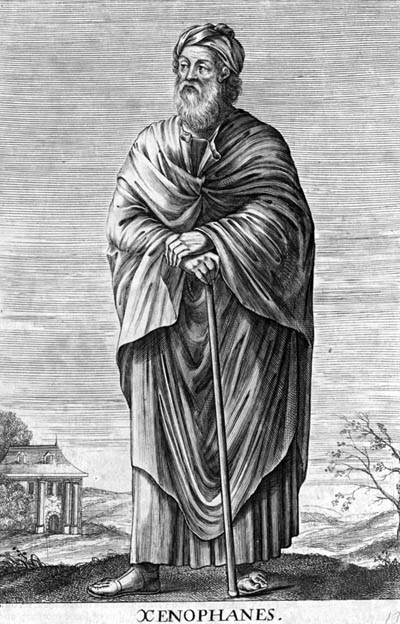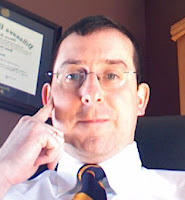Two years ago today I wrote, "
One Precondition for Genuine Ecumenical Dialogue," in which I pointed out the distinction between rational dialogue and sophistry, and then described three signs of sophistry.
As surprising as it may sound, a major impediment to fruitful ecumenical dialogue is an unfamiliarity with the rules of rational dialogue, including the basic rules of logic. Many persons in the general populace have never taken a course in logic or even studied logic, and the result is that relatively few people know how properly to engage in rational dialogue. The new media encourages a soundbyte mode of interaction, which is usually unproductive and often counterproductive. It lends itself to sophistry rather than furthering mutual understanding and converging upon the truth. When the rules of rational dialogue are not followed, discourse tends to descend into the cacophony of narcissism and verbal violence. In many cases this is precisely what we find in comboxes. Here are some things that anyone who wishes to participate in ecumenical dialogue needs to know.
First, we need to know what an argument is. In common popular usage, an 'argument' is thought of as a quarrel or debate. But with respect to logic, an argument is a set of propositions or statements, one of which (called the 'conclusion') is said to follow from the others (called 'premises'). An argument is the smallest unit of speech containing reasoning from one proposition to another. So if some instance of communication does not include arguments, then that communication is only a series of assertions or questions. If it is part of an interchange, asking and answering questions can allow for shared contemplation and consideration of respective positions. And such exchanges can be very effective at paving the way for presenting arguments from shared common ground, because sincere questions and authentic answers are absolutely essential for coming to understand each other. And sometimes when we come to understand two positions more clearly, the superiority of one over the other becomes self-evident, and does not need to be demonstrated by further argumentation. But merely exchanging assertions is not shared reasoning by which two or more persons move together rationally toward agreement about the truth. In general, without arguments there can be no mutual movement of the intellect toward a shared conclusion. Merely trading assertions is futile, and for that reason a wise person will not do it.
In rational dialogue, when someone presents an argument, we evaluate the argument according to two criteria. First we evaluate the truth of the premises. That is, we check each premise to determine whether it is true. If we find that one or more of the premises is not true, then we show why those premises are false, or why the available evidence indicates that those premises are false. Then we evaluate the form of the argument. That is, we make sure that the conclusion follows from the premises. If the conclusion does not follow from the premises, then we show how the truth of the premises does not guarantee that the conclusion is true. However, if we find that the premises are all true, and that the conclusion follows by necessity from the premises, then we accept the argument as a sound argument, and we accept the truth of its conclusion.
So there are essentially three possible proper responses to a deductive argument. Either we show the argument to be unsound, or we accept the truth of its conclusion, or we withhold judgment for the time being, explaining that we need time to think about it or investigate it more deeply, and we take the time to think about it, until we can either refute the argument or accept the truth of its conclusion. We do not change the subject or criticize the person presenting the argument or talk about ourselves. Arguments are not properly evaluated by self-referring statements, such as, "I don't buy that argument" or "I am unpersuaded" or "I am skeptical" or "I am ...." The question at hand is not about oneself, but about whether the argument is sound. So talking about oneself is changing the subject, and avoiding the question at hand. The only two ways to refute an argument are to show one or more of the premises to be false or show that the conclusion does not follow from the premises. That is why none of the following statements refutes an argument:
(1) "That argument does not work."
(2) "That argument is unhelpful, uninformed, unimpressive, strange, betrays ignorance."
(3) "That argument is absurd."
(4) "That argument is convenient."
(5) "That argument is old/tired/tiresome/stale."
(6) "That argument is impossible."
(7) "That argument is unsatisfactory."
(8) "That argument is offensive." (or hurtful, harmful, disrespectful, toxic, tragic, appalling, painful, unpleasant, insulting, bigoted, stupid)
Other points:
(9) "I'd like to suggest that ... " or "I suggest that ..." or "I submit that ..." are not arguments; they are mere suggestions. Merely adding this phrase to the beginning of a claim does not turn it into an argument.
(10) An assertion is not an argument; it is merely an assertion. Assertions demonstrate nothing, establish nothing, show nothing, unless the authority of the speaker is sufficient to establish the truth of the assertion. An assertion without an argument is implicitly therefore an argument from authority, namely, the speaker's authority, and thus the speaker is implicitly presupposing that he or she is an authority on the subject in question, having sufficient authority on the subject so as to establish publicly the truth of the assertion merely by making the assertion.
(11) Avoid begging the question (i.e. presuming precisely what is in question between you and your interlocutor).
(12) We rightly accept or reject claims ultimately by their truth or falsity, not by whether believing them has (at least for some) desirable or undesirable consequences. A truth can lead to or result in undesirable consequences, and a falsehood can lead to or result in desirable consequences.
(13) "Your attempt rings hollow" transfers focus to the will (i.e. an 'attempt'), which is internal and subjective, rather than keeping the focus on one's argument, which is external and objective. It also uses an entirely subjective and vague evaluative criterion (i.e. "rings hollow"), rather than using "truth" and "falsity", "soundness" and unsoundness" as criteria.
(14) Similarly, an argument is not properly evaluated by whether it is "compelling," "convincing," or "persuasive," or "plausible". Those are subjective criteria. Just because I am not compelled, convinced, or persuaded by the argument, or do not find it plausible, does not show that the argument is unsound. (Only if I were the Logos Himself would this follow.) To use one's own not-being-persuaded, not-being-convinced, not-being-compelled, or not-finding-plausible, as the criterion by which to evaluate arguments is to treat oneself as God, and for this reason can be referred to as the divine identity fallacy.
(15) "That argument doesn't hold water" is not a refutation of an argument.
(16) "I would argue that x" is not an argument for x, but a claim that under other conditions, one would provide such an argument. This phrase is typically used because of a conflation of 'argument' and 'claim.' It is the subjunctive phantom argument fallacy.
(17) "That argument is hard to take seriously in all honesty." The fact that a person has difficulty taking an argument seriously (in all honesty) is not a refutation of the argument, but a statement about the person.
(18) "Why do you feel the need to say things like [x]?" This is an ad hominem. Instead of showing that x is false, it sophistically calls into question the interlocutor's motivations, by framing them in terms of misguided feelings aimed at alleviating some psychological need. Psychological deconstruction avoids refuting the interlocutor's claim, but instead presumes its error and attempts to construct a psychological reason for the interlocutor's [alleged] error. This is a form of the
bulverism fallacy. Another example of this fallacy can be seen when criticisms of position Y are re-described (by an interlocutor) as fears of position Y. The bulverism fallacy can also be seen in cases where the decision to accept position X is treated by others as arising from some psychological desire for comfort, security, money, acceptance, power, etc. rather than as a result of arriving at the conclusion that X is true. Another form of the bulverism fallacy is the "if you disagree with me, you must be experiencing an illusion" stance. Rather than showing
that the interlocutors are wrong, it presumes that the interlocutors are wrong and attributes their disagreement with the speaker to illusion, hallucination, disordered desire, or other epistemic or cognitive failure on their part.
(19)
Abusus usum non tollit. Abuse does not nullify proper use. If people have appealed to a truth T in order to attempt to justify or rationalize harmful behavior B, that does not falsify truth T. The abuse of a truth does not falsify that truth. So appealing to truth T in order to rationalize wrongful behavior B is compatible with T being true. The objection conflates the truth and the misuse of the truth, by treating criticism of the misuse of the truth as if such criticism also shows T not to be true.
(20) "Go read a book" or "Go read book x," or any other imperative, does not refute an argument or falsify a claim.
(21) "Only someone who has never contemplated x or attempted y or been through z would make that argument or think that argument a good or sound argument." This is the
ad hominem fallacy, and leaves the argument unrefuted. On ad hominems in general, see
comment #28 in the Virtue and Dialogue thread.
(22) Criticisms of X are not endorsements of Y. Responding to another person's criticism of X with a criticism of Y, as if that nullifies the criticism of X, is a form the
tu quoque falllacy.
(23) Questions are not arguments. Questions are not reasons. Questions are questions. One kind of sophistry is treating questions as substitutes for arguments.
I will be updating this page on a regular basis, with the intention of making it into a more thorough guide for rational ecumenical dialogue. If you have any suggestions, I'd be glad to hear them.


























